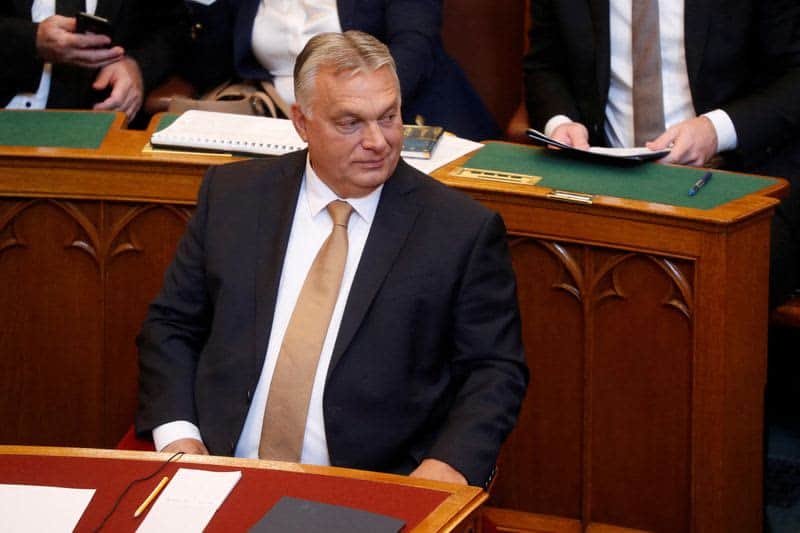Reuters

By Krisztina Than and Gabriela Baczynska
BUDAPEST/BRUSSELS (Reuters) -Hungary's parliament passed the first of a series of anti-corruption bills on Monday as Budapest seeks to avoid a loss of European Union funds at a time when its economy is headed into recession and the forint has plunged to record lows.
Prime Minister Viktor Orban's ruling Fidesz party passed an amendment to the criminal code to set up a procedure concerning criminal offences related to the management of public property, allowing a judicial review in case an investigation is closed without indictment or a crime report is dismissed.
Parliament passed the bill with 136 members voting yes, while seven voted against it and 14 abstained.
The legislation is one of 17 commitments Orban's government made to the European Commission to stave off a suspension of billions of euros of EU money over breaches of democratic checks and balances including weak anti-corruption safeguards. For a full list of Budapest's commitments, please see:
Facing surging energy costs and inflation, a record weak forint and a slowing economy, Orban, long at odds with the EU, now looks willing to fulfil demands to create institutions that would cut corruption risks.
The EU will have until Nov. 19 to assess Hungary's actions and whether they curb the risk of misspending EU money. Otherwise, the bloc would be expected to approve cutting 7.5 billion euros ($7.36 billion) earmarked for Hungary, some 5% of its 2022 GDP estimate.
EU Budget Commissioner Johannes Hahn told European lawmakers on Monday evening that the 17 steps would reassure the bloc if they were correctly legislated and put in place.
“As simple as it sounds – money talks,” Hahn said. “Now it's our role to take Hungary at its word and help the authorities implement this. Important dates for the implementation of these proposals are still to be determined.”
DEMOCRACY?
Several EU lawmakers called on Hahn not to let Orban off the hook but scrutinise closely the reforms in Hungary, which the chamber has recently declared is no longer a full democracy but a “hybrid regime of electoral autocracy.”
Orban denies that Hungary – an ex-communist country of some 10 million people – is any more corrupt than others in the EU.
Hungary had irregularities in nearly 4% of EU funds spending in 2015-2019, according to the bloc's anti-fraud body OLAF, by far the worst result among all the 27 EU countries.
Reuters documented in 2018 how Orban channels EU development funds to his friends and family, a practice human rights organisations say has immensely enriched his inner circle and allowed the 59-year-old to entrench himself in power.
In more than a decade in power, Orban tightened state control over media, courts, NGOs and academia, restricted the rights of women, gay people and migrants, and clashed increasingly with liberal Western Europe which sponsors EU handouts.
A favourable decision on the funds later this year could ease pressure on the forint and Hungarian assets, which have sold off in past weeks as emerging markets were hammered due to the U.S. dollar's surge, with Hungary's vulnerabilities making its assets especially exposed to risk aversion.
“We expect that by mid- to end-November Hungary will make progress towards … a deal for the recovery funds,” Bank of America said in a note on Monday. “The cash-strapped administration has no choice but to compromise with the EU.”
($1 = 1.0185 euro)
(Reporting by Krisztina Than in Budapest and Gabriela Baczynska in BrusselsEditing by Susan Fenton and Matthew Lewis)



